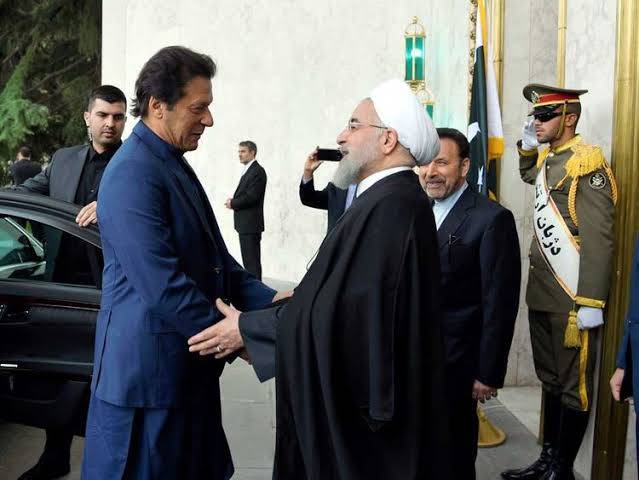Former Deputy Foreign Minister Ebrahim Rahimpour said on Sunday that Iran welcomes Pakistan's efforts to drive the region to de-escalation and that compared to other countries, Pakistan has a better record of mediation efforts in the region.
Pakistan is one the most important countries in the region that has a 900-km long border with Iran. Many of their issues have mutual impacts on the other. Islamabad, undoubtedly has several areas for cooperation and interaction with Iran, said veteran diplomat Ebrahim Rahimpour in an interview with IRNA.
Referring to the reason of Pakistan independence from India, Rahimpour said that Pakistan gained independence from India based on the religion of the people, i.e. Islam, and that's why it cannot be indifferent to the situation in the Islamic countries.
He added that, on the other hand, there are two big powers in the Muslim World, called Iran and Saudi Arabia, and tension in their relations affects the entire Muslim World, including Pakistan. Islamabad tries hard to prevent tensions.
Regarding the strategic ties of Islamabad with Tehran and Riyadh, he said Iran and Pakistan have a lot in common in culture, history, language, and religion, and three million Pakistanis live in Saudi Arabia, which sends a satisfactory income to Pakistan every year.
The Two Holy Mosques are located in Saudi Arabia, which makes the country holy for Pakistanis and encourages Islamabad to have good ties with Riyadh.
Referring to Pakistan's Prime Minister Imran Khan's visit to Iran, he said that the visit has a lot on agenda, including mediation between Iran and the Saudi government.
Rahimpour added that Islamabad's efforts to de-escalate tensions between Iran and Saudi Arabia is nothing new. Former President of Pakistan Muhammad Zia-ul-Haq tried to mend the ties between the two powers of the Islamic world in the framework of Organization of Islamic Cooperation.
Former Prime Minister of Pakistan Nawaz Sharif also made some efforts that were not welcomed by the Saudis, he said, adding that Prime Minister Imran Khan's efforts are actually the follow-up the previous measures taken by Islamabad.
Though their previous efforts failed, they are not disappointed and of course they shouldn’t be. The new efforts may pave the way for the future ones, said Rahimpour.
He added that the roots of Imran Khan's efforts originate in the previous moves made by Pakistan in that regards and on the other hand, Iran is an important country for Pakistan and Islamabad doesn’t want Tehran-Riyadh tensions have an impact on itself, so it follows the initiative of mediation.
Another motivation of Prime Minister Imran Khan is the domestic situation in Pakistan: the issues of Kashmir, Afghanistan, India, and improving domestic economy. He tried to de-escalate Tehran-Riyadh ties to leave a positive legacy from himself, Rahimpour said.
The veteran diplomat Rahimpour added that Pakistan made some efforts in New York to ease the tensions between Tehran and Washington, as well.
Regarding the statement published by the Foreign Ministry of Pakistan that said the visit is not made at Riyadh request, he said that the Pakistanis behaved in a way that implied they were asked to do so by the Saudis, and as the Saudis have always wanted to speak to Iran from the instance of power, even if that was the case, Islamabad shouldn’t have revealed it. So they had to publish the statement to say that was not the case.
Taking any actions toward easing tension is good, but thinking that after Imran Khan's visit to Tehran, everything between Iran and the Saudi Government will be solved is not right.
Regarding the fact that an Iranian oil tanker, SABITI, was hit in the Red Sea on the threshold of Prime Minister Imran Khan's visit to Tehran, he said most probably that is not related to the visit. The region is in chaos, so things like this may happen to anyone, even Iran.
He said that the only way to put an end to such incidents is to cooperate with each other, and since there is no mutual understanding and dialog between countries, things like that may happen further.






